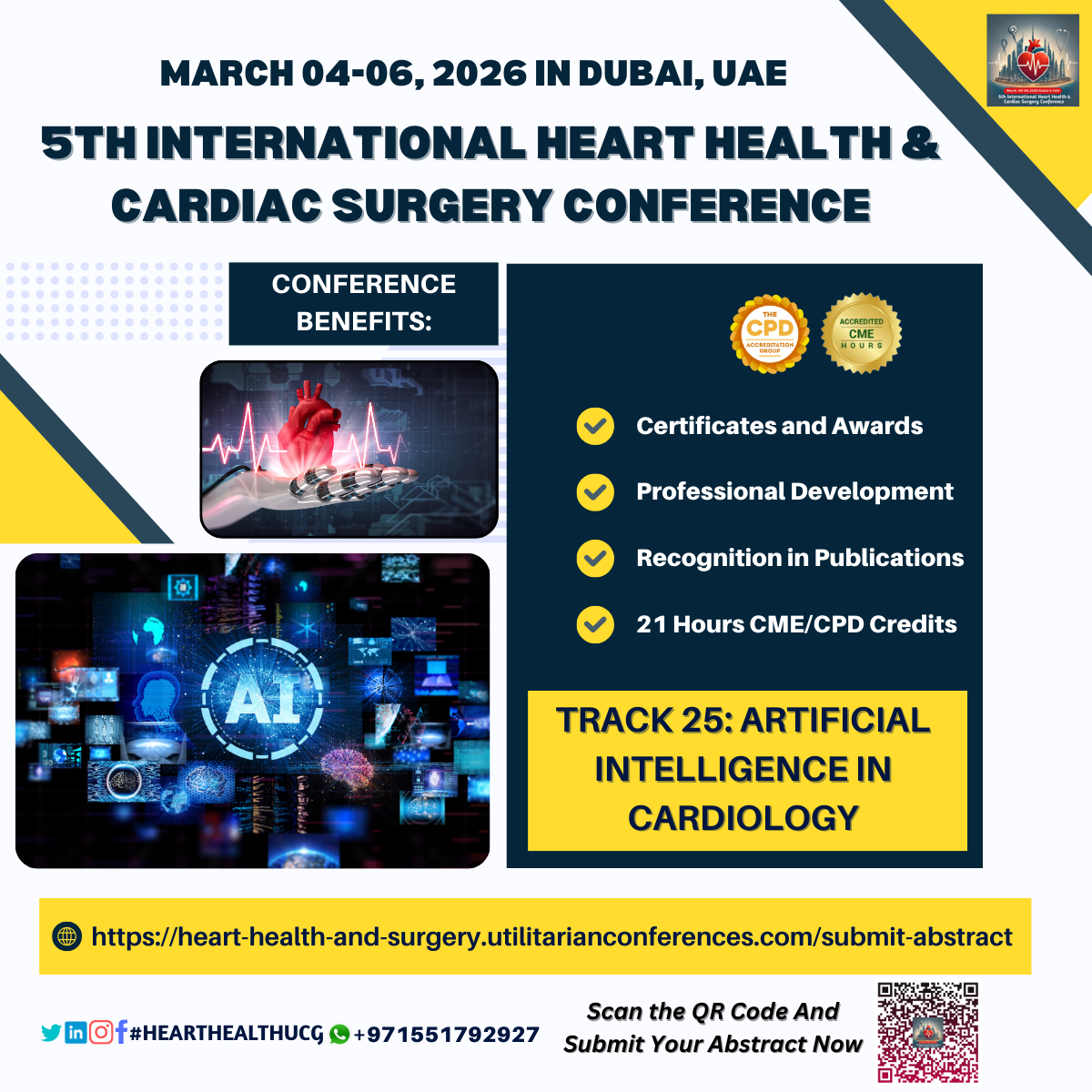



Heart Health is a broad and essential topic that refers to maintaining the...

Cardiovascular diseases (CVDs) are the leading cause of death globally,
claiming an estimated 17.9...

In the era of digital transformation, Artificial Intelligence (AI) is no longer a futuristic concept—it’s a
present-day reality, making powerful strides across industries. Among its most impactful applications is in cardiology, where AI is reshaping how we detect, diagnose, treat, and monitor heart disease. From enhancing early detection to optimizing treatment strategies, AI is bringing us closer to more personalized, efficient, and predictive cardiovascular care.
The Need for AI in Cardiology
Cardiovascular diseases (CVDs) remain the leading cause of death globally, responsible for an estimated 17.9 million lives each year. Despite advancements in medical technology and knowledge, early diagnosis and effective management continue to be challenging due to:
Overwhelming volumes of patient data
Variability in clinician interpretation
Delays in diagnosis and treatment
Incomplete access to continuous monitoring AI offers tools to overcome these challenges by analyzing vast datasets, identifying subtle patterns, and supporting clinical decisions with unmatched speed and accuracy.
Key Applications of AI in Cardiology
1. Early Detection and
Diagnosis
AI algorithms, especially those based on machine learning and deep learning, can detect early signs of cardiovascular disease from diagnostic tools like:
Electrocardiograms
(ECGs) – AI can interpret ECGs more accurately and quickly than human clinicians, identifying arrhythmias, ischemia, and other abnormalities.
Imaging
– AI enhances interpretation of echocardiograms, cardiac MRIs, and CT scans by detecting structural or functional anomalies that might be overlooked.
Predictive Models – Risk stratification tools use patient data to predict the likelihood of heart attacks, strokes, or heart failure before symptoms appear.
2. Personalized Treatment Plans
By analyzing patient-specific data—genetics, lifestyle, comorbidities, imaging, and biomarkers—AI can help tailor interventions. This includes: Choosing the most effective medications Predicting individual response to treatments Identifying candidates for advanced therapies (e.g., implantable devices or surgeries)
3. Remote Monitoring and Wearables AI powers smart wearable devicesthat monitor heart rate, rhythm, oxygen saturation, and activity levels in real-time. These tools are particularly valuable in: Detecting atrial fibrillation and other
arrhythmias
Monitoring chronic heart failure patients Enabling proactive interventions through mobile alerts and telehealth integration
4. Robotic-Assisted Procedures In interventional cardiology and cardiac surgery, AI aids robotic systems in: Enhancing precision during procedures Reducing human error
Shortening operation and recovery times AI-guided robots also help with catheter navigation during angioplasty or ablation therapy.
5. Clinical Decision Support Systems (CDSS) AI-driven CDSS can assist cardiologists in
making informed decisions by: Providing evidence-based recommendations Highlighting potential complications Automating documentation and workflow optimization Real-World Examples
Google’s DeepMind has developed AI that can predict heart disease b analyzing retinal scans.
AliveCor’s KardiaMobile offers FDA-approved portable ECG monitoring, powered by AI to detect arrhythmias.
IBM Watson Health has explored cardiovascular risk prediction using EHRs (electronic health records) and natural language processing.
Challenges and Ethical Considerations While promising, AI in cardiology faces several challenges:
Data Privacy & Security – Handling sensitive patient data requires robust encryption and ethical safeguards.
Bias in Algorithms – Incomplete or non-diverse data can lead to biased outcomes, particularly in underrepresented populations.
Regulatory Approval – Medical AI tools must meet stringent clinical validation and regulatory compliance.
Clinical cceptance – Building trust among cardiologists and healthcare providers is critical for adoption.
The Future of AI in Cardiology The trajectory is clear—AI is not replacing
cardiologists but augmenting their
capabilities. As technology evolves, we can anticipate: Greater integration of AI in routine clinicalworkflows
Real-time diagnostics through mobile platforms AI-led population health strategies to prevent heart disease at a community level
Ultimately, AI empowers a smarter, more responsive healthcare system, where heart disease can be managed proactively rather than reactively.
Conclusion
Artificial Intelligence is redefining cardiology by enabling faster, more accurate diagnoses, personalized treatments, and continuous monitoring of cardiovascular health. As we navigate
this exciting frontier, collaboration between technology developers, clinicians, and patients will be crucial to ensure that AI delivers on its promise: saving lives and improving heart health for all.